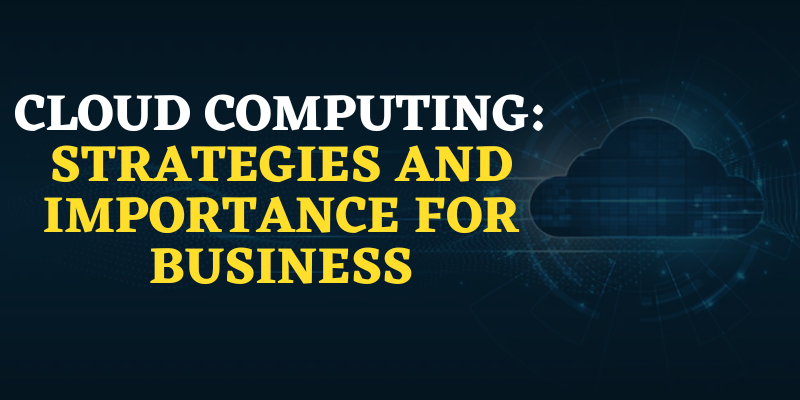Introduction
In this blog, we will discuss cloud computing strategies and their importance factors for business. The delivery of scalable and elastic IT-enabled capabilities as a service through the Internet is known as cloud computing. The field of cloud development is in high demand and offers several advantages. Companies are employing limitless networks, often known as cloud databases, to store their data as more industries move toward entirely remote offices. To protect the data of businesses, a lot of cloud developers create, maintain, and enhance the cloud database.
To learn more about cloud computing businesses, join Cloud Computing Courses in Chennai at FITA Academy for the best training with Placement Assistance.
The Business Benefits of the cloud:
Technically speaking, the cloud combines networks, deployments, and apps to create more streamlined business solutions. From a strategic perspective, the cloud offers companies the chance to create new digital services for customers and employees. It also boosts workload efficiency and cost-effectiveness and generally gives them the capacity to adjust quickly to shifting customer needs during disruptive times. The debate over whether to hasten the migration of workloads to the cloud is becoming more and more important due to high inflation and the prospect of a recession.
The most important elements of cloud strategy
A cloud strategy provides an explanation for “what” and “why.” The cloud implementation plan doesn’t address the “how” questions until later.
Important factors for cloud computing strategies
It is essential to develop a thorough cloud plan before implementing cloud computing, yet, most businesses develop their cloud strategies after using the technology for a while. But the more problems you’ll prevent, the earlier you implement a cloud approach.
In addition to being in line with supporting strategies for data, security, governance, and architecture, cloud strategy should be optimised for business goals, including speed, resilience, and agility.
Plan your cloud strategy for speed and business benefit.
Start by tying the three main CIO priorities (as they relate to enterprise strategy) to cloud strategies:
- Creativity and strategy. How can cloud services work to create and help businesses address problems?
- Security and governing. Can cloud offering different governance frameworks handle varying deployment requirements and risk profiles?
- Migration and mobilisation. How might the cloud help with business goals like digital transformation? Cloud Computing Online Course will enhance your technical skills in cloud platform.
Make the application architecture strong.
Your business model’s choice of cloud models, architecture, and service providers will be crucial for backing your cloud strategy both today and in the future. Think about the primary goals you hope to achieve in terms of capability, reliability, agility, automation, efficiency, and cost optimization as part of your strategy.
Cloud skill and abilities
Your readiness to implement and adapt your cloud strategy must be reviewed. To head a cloud centre of excellence, for instance, determine whether you require a chief cloud architect. To fill skills gaps if you’re moving to the public cloud, you could need to hire new talent and upskill current workers.
Conclusion
So far, we have discussed Cloud Computing strategies and their importance factors for business. Gartner predicts that by 2026, public cloud spending will account for more than 45% of all enterprise IT spending, up from less than 17% in 2021 as a result of new trends in cloud computing that are continuing to broaden the range of cloud products and capabilities.
To know more about cloud computing and business, join FITA Academy’s Cloud Computing Courses in Coimbatore with the worthy certification and career guidance.



